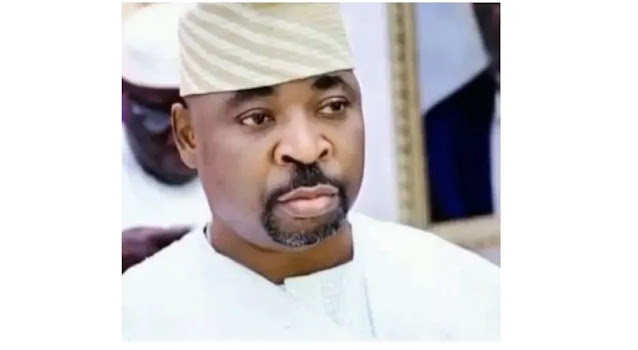Hayatu Ahmed, a former Chief Superintendent of the Economic and
Financial Crimes Commission (EFCC) has accused a former
Accountant-General of the Federation, Ahmed Idris, of misappropriating public
funds by manipulating government financial systems
Ahmed identified the compromised systems as the
Treasury Single Account, TSA, the Government Integrated Financial Management
Information System, GIFMIS, and the Integrated Payroll and Personnel
Information System, IPPIS.
Idris, alongside Godfrey Olusegun Akindele and
Mohammed Kudu Usman, were on trial for an alleged N109 billion fraud.
According to a statement by the former EFCC
spokesperson Wilson Uwujaren, Ahmed, serving as the chief prosecuting officer,
testified during a session at the Federal Capital Territory, FCT, High Court
that EFCC investigations revealed Idris’s involvement in diverting funds from
the TSA, GIFMIS, and IPPIS.
The witness further disclosed that the diverted
funds were traced to properties including Gezawa Exchange Limited, Gezawa Integrated
Farms, and Kano City Mall.
“We had cause to invite several individuals who had
transactions with the Gezawa Commodity and Exchange Limited and found one Baita
Ibrahim Kura, of BI Kura Ibrahim, a Bureau de Change operator based in Kano,” Ahmed was quoted as saying.
“We invited him and cautioned him and he
voluntarily wrote a statement, claiming he made several payments like N208
million into Gezawa Commodity Market with Jaiz bank.”
Ahmed
further informed the court that Ibrahim admitted to paying N866 million to
Mustapha Mukhtar of Marsc Construction Limited for the construction of the
Gezawa Commodity Market and Exchange Limited.
“My Lord, investigation showed that, Ibrahim received
United States dollars from the first defendant. We also found out that
agitation from the nine oil-producing states, regarding derivation from the
excess crude account, was tabled before the Federal Account Allocation
Committee, FAAC, and the committee came up with a figure of about $2.2 billion
as what was due to the nine oil producing states, and these amount was to be
deducted over a 60 months period on quarterly basis,” the investigating officer said.
The EFCC witness further testified that 11.5 percent of the total amount, equivalent to N44.7 billion, was allocated to certain public officials as incentives to expedite payments to oil-producing states.
“After the determination of this committee, my lord, some companies, Akindele and Co, a company owned by the second defendant, Godfrey Olusegun Akindele, was presented under the guise of consultancy,” Ahmed said.
“My lord, until recently, the second defendant,
Akindele, was a staff in the office of the AGF, and technical assistant to the
first defendant. Investigation revealed that N84.39 billion was paid into
Akindele’s bank accounts.”
The former EFCC officer disclosed that an
additional N21 billion was deposited into Akindele’s account in February 2021,
with further payments made later that year, totaling N94.39 billion.
Ahmed testified that the funds were distributed
among various groups and individuals, including Peace Akomas of the Revenue
Mobilisation Allocation and Fiscal Commission, RMAFC, who was said to have
received N18.8 billion.
“The second
group is the AGF group and it got a total sum of N18.01 billion,” Ahmed said.
“The third group, the Commissioners of
Finance in the nine oil-producing states, received N21.4
billion. The money was withdrawn by Akindele, converted to US dollars and
handed over to Akomas on behalf of the group.
“The fourth group is called the Yari group. This
group received N17.15 billion. The entirety of the sum was transferred to the
account of Fimex Professional Services on the instruction of the representative
of this group: Abdulaziz Yari, former Zamfara state governor.
“The remaining N8.9 billion was retained by the second defendant. Furthermore, N4.29
billion was converted to US dollars by Akindele as appreciation for the
consultancy contract, and the balance of N4.6 billion was given to Akindele.”
The former
EFCC officer revealed that properties acquired with the misappropriated funds
by the first and third defendants were located in various areas across Abuja,
Kano, and Niger states.




































